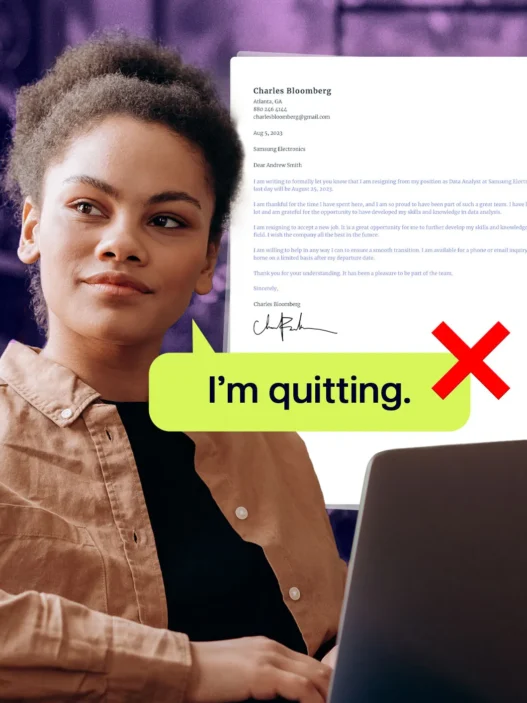Your first job is more than just a paycheck—it’s the foundation of your career. Accepting the right role can set you on a path to growth, fulfillment, and long-term success. But how do you know if a job offer is the right fit for you? The answer lies in asking the right questions.
Before saying “yes” to a job offer, take the time to reflect on the role, the company culture, and your long-term goals. In this guide, we’ll explore why it’s important to ask questions before accepting a job offer and provide a list of key questions to ask hiring managers to ensure you make an informed decision.
Why Ask Questions Before Accepting a Job Offer?
Asking questions before accepting a job offer is crucial for several reasons:
- Gain Clarity: Understand the role, expectations, and company culture.
- Assess Fit: Determine if the job aligns with your skills, values, and career goals.
- Negotiate Terms: Clarify salary, benefits, and other important details.
- Show Enthusiasm: Demonstrate your interest in the role and the organization.
By asking thoughtful questions, you can avoid unpleasant surprises and ensure the job is a good match for your needs and aspirations.
Questions to Ask Yourself Before Accepting a Job Offer
Before diving into questions for the hiring manager, take a moment to reflect on your own feelings and goals. Ask yourself:
- Am I excited about this role, or just about getting an offer?
- Does this job align with my long-term career plans?
- Will this role challenge me and help me grow?
- Do the working hours and location suit my lifestyle?
- Did I feel comfortable with the people I met during the interview?
Answering these questions can help you clarify whether the job is truly right for you.
Key Questions to Ask Hiring Managers
Here are some essential questions to ask before accepting a job offer, organized by category:
1. Questions About Company Culture
Company culture plays a huge role in your job satisfaction. Ask these questions to gauge whether you’ll thrive in the organization:
- How would you describe the company culture?
- What values are most important to the organization?
- How long has the current team been in place?
- Can I meet the team or the person currently in this role?
- How does the company support employee well-being and work-life balance?
2. Questions About Career Growth and Development
Your first job should offer opportunities to learn and grow. Ask these questions to understand your potential career path:
- What opportunities are there for professional development and training?
- How does the company measure success in this role?
- Are there opportunities for advancement within the organization?
- What does the onboarding process look like?
- Can you share examples of employees who have grown within the company?
3. Questions About Daily Responsibilities
Understanding your day-to-day tasks can help you prepare for the role and assess if it’s a good fit:
- What does a typical day look like in this role?
- Who will I report to on a daily basis?
- What are the key challenges I might face in this position?
- What tools and resources will I have to succeed?
- Are there any upcoming projects or priorities I should be aware of?
4. Questions About Salary and Benefits
Don’t shy away from discussing compensation and benefits. These questions can help you evaluate the offer:
- Is there room for negotiation on the salary?
- Can you elaborate on the benefits package (e.g., health insurance, retirement plans, bonuses)?
- Are there any additional perks, such as remote work options or professional development stipends?
- How often are performance reviews conducted, and are they tied to salary increases?
- What is the company’s policy on paid time off and sick leave?
5. Questions About the Hiring Process
Clarify the next steps and timeline to ensure you’re on the same page:
- How long do I have to accept the offer?
- What are the next steps in the hiring process?
- When is the expected start date?
- Are there any additional documents or information you need from me?
How to Ask These Questions
When asking questions, keep these tips in mind:
- Be Polite and Professional: Frame your questions respectfully and avoid sounding confrontational.
- Prioritize Your Concerns: Focus on the questions that matter most to you.
- Take Notes: Write down the answers to refer back to later.
- Follow Up: If you think of additional questions after the conversation, send a follow-up email.
Example Conversation After Receiving a Job Offer
Here’s how you might approach a conversation with a hiring manager after receiving a job offer:
You: Thank you so much for the offer! I’m really excited about the opportunity to join [Company Name]. Before I make a decision, I’d love to ask a few questions to better understand the role and the company.
Hiring Manager: Of course! I’m happy to answer any questions you have.
You: Great! First, could you tell me more about the company culture and what makes it unique?
Hiring Manager: Absolutely. We pride ourselves on fostering a collaborative and inclusive environment. We also offer flexible work arrangements and regular team-building activities.
You: That sounds wonderful. I’m also curious about opportunities for growth. Are there any training programs or mentorship opportunities available?
Hiring Manager: Yes, we have a robust professional development program, including access to online courses and regular performance reviews to discuss career goals.
You: That’s great to hear. Lastly, is there any flexibility in the salary or benefits package?
Hiring Manager: We’re open to discussing the offer. Let me know what you have in mind, and we can explore options.
You: Thank you so much for your time. I’ll review the details and get back to you soon.
Conclusion: Make an Informed Decision
Accepting your first job offer is a big step, and it’s important to make an informed decision. By asking the right questions, you can gain valuable insights into the role, the company, and your potential for growth.
Take the time to reflect on your goals, evaluate the offer, and don’t hesitate to ask for clarification or negotiate terms. Remember, this is your career—make sure it starts on the right foot.
Call-to-Action:
Need more career advice? Check out our free job search guides and interview preparation tips to help you navigate your next steps with confidence!





















